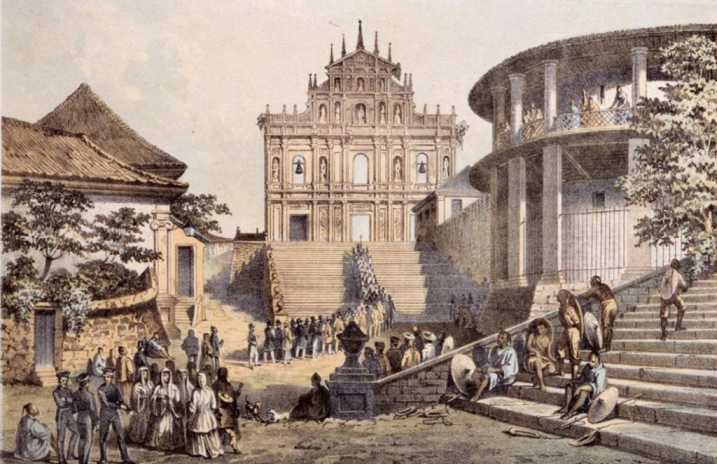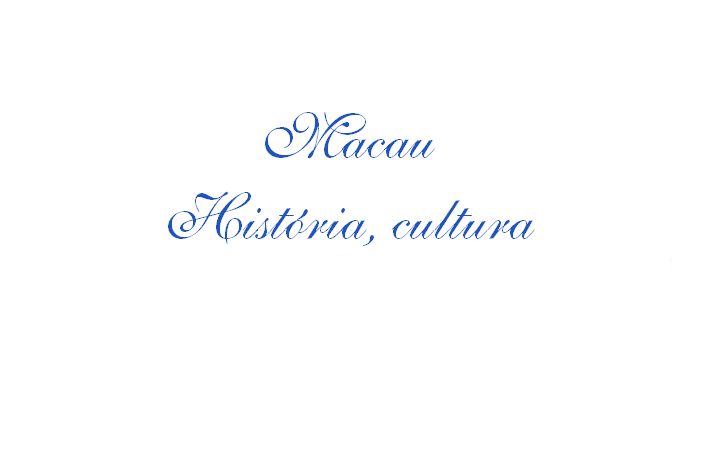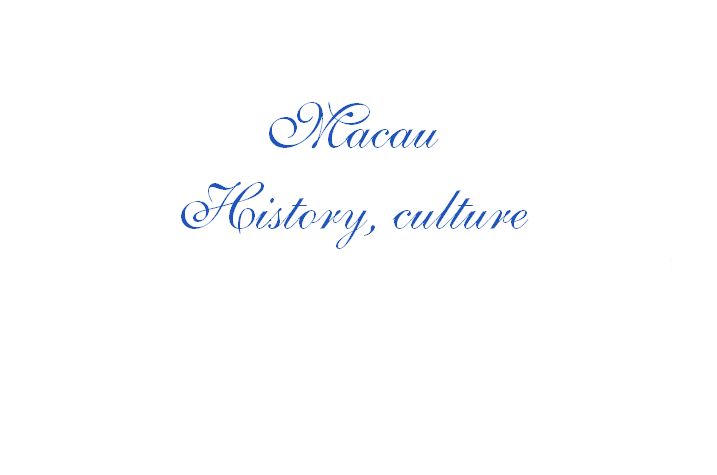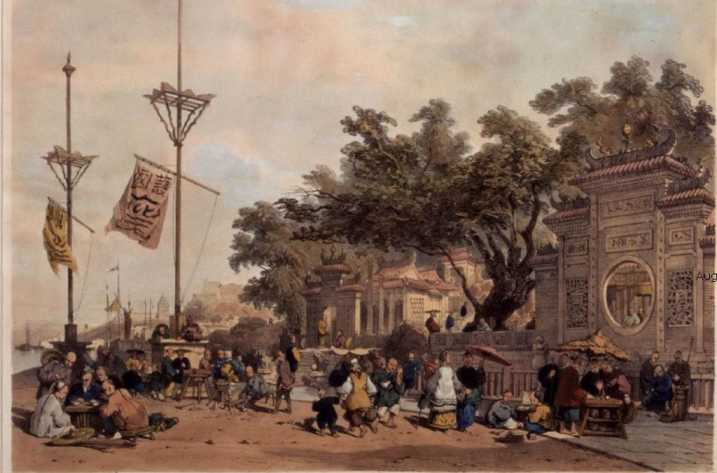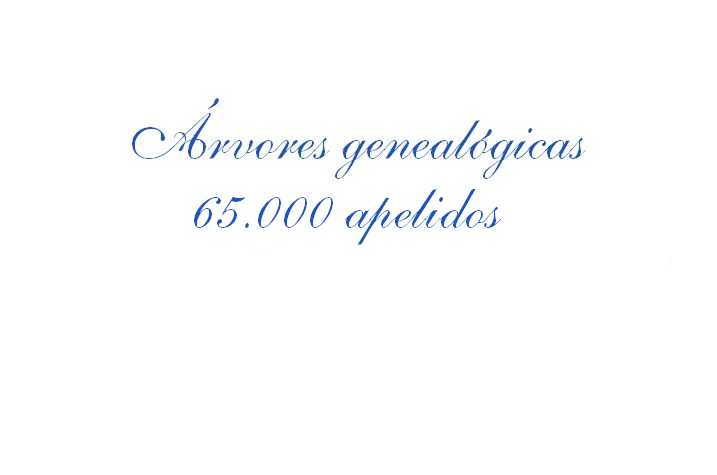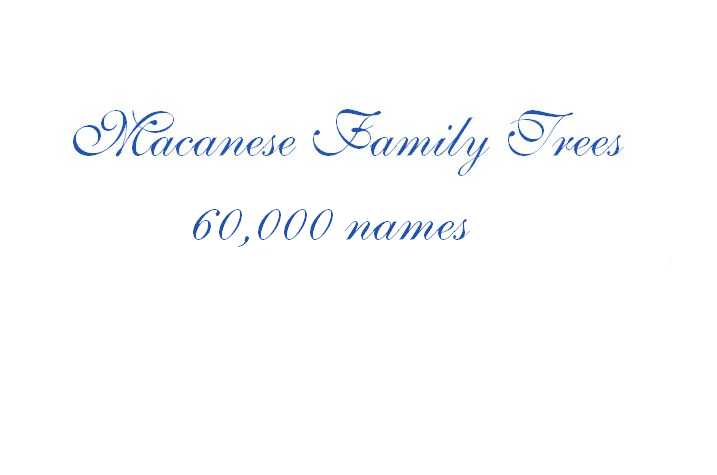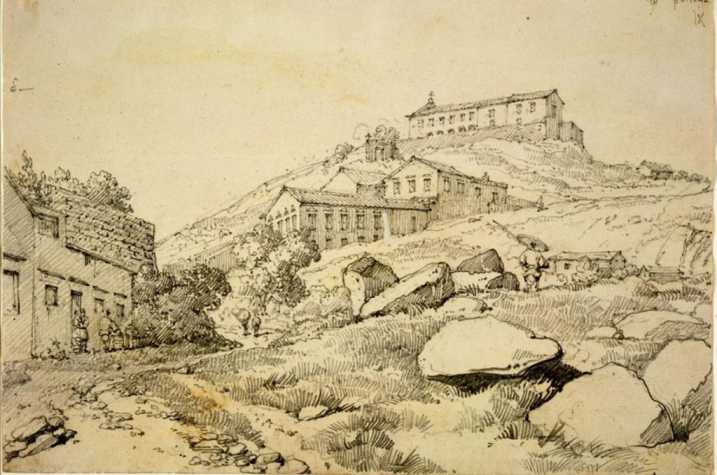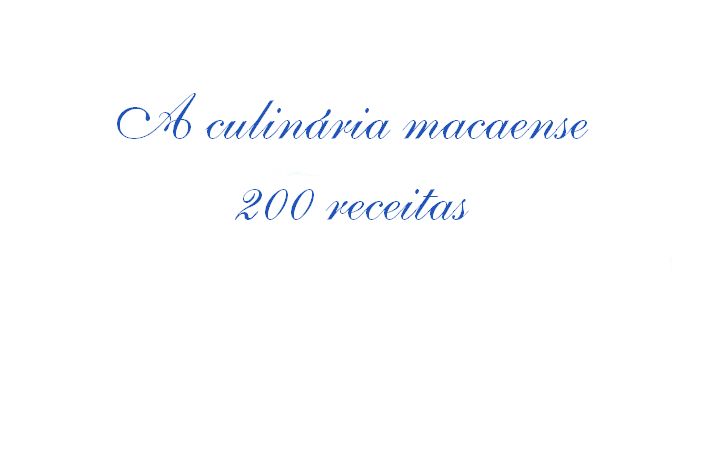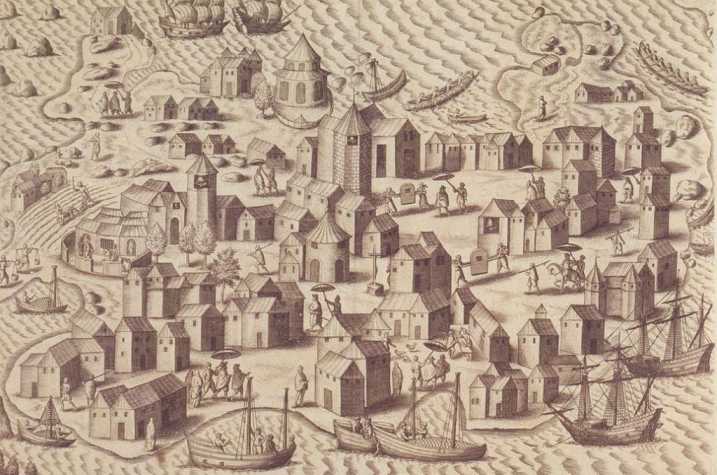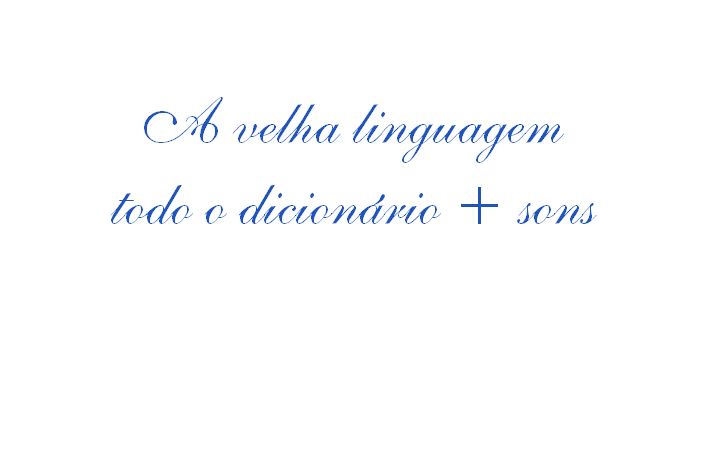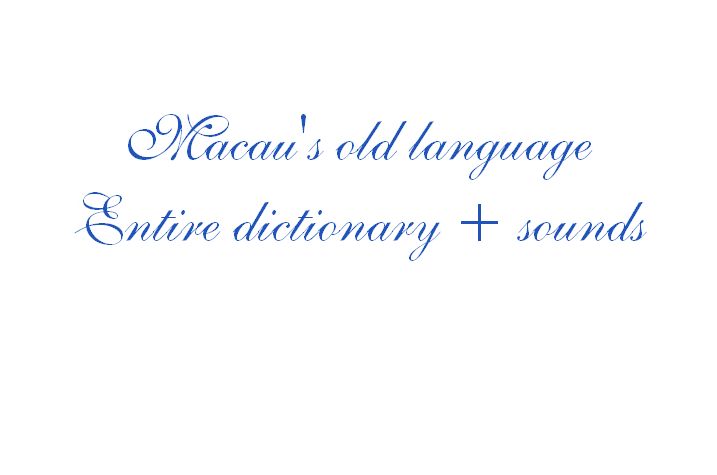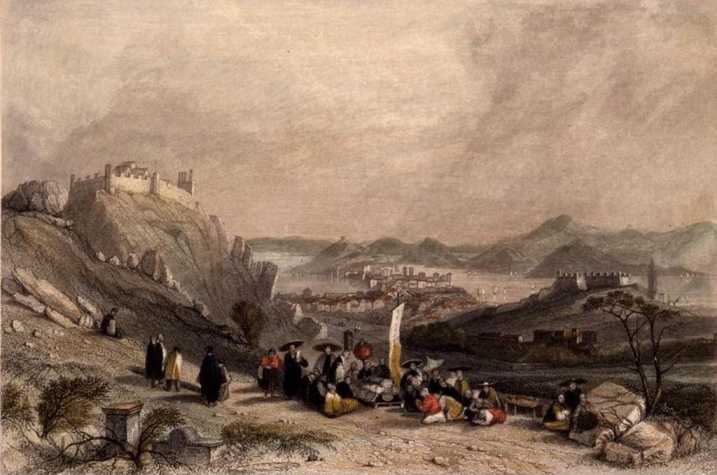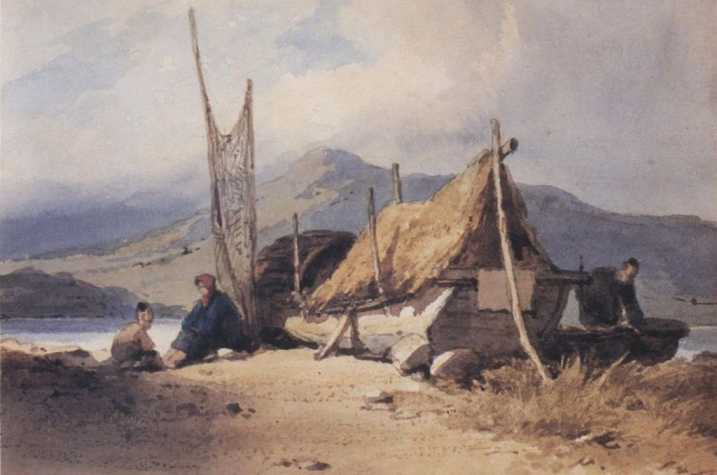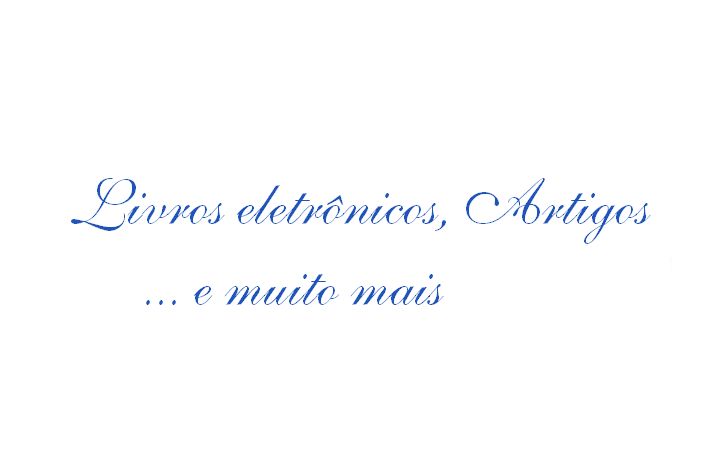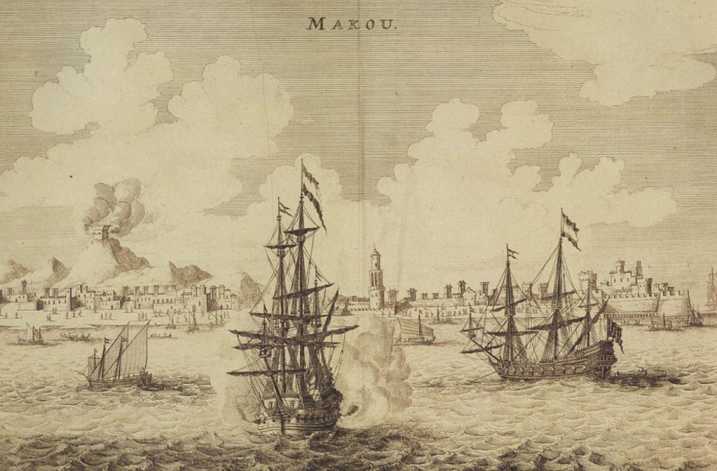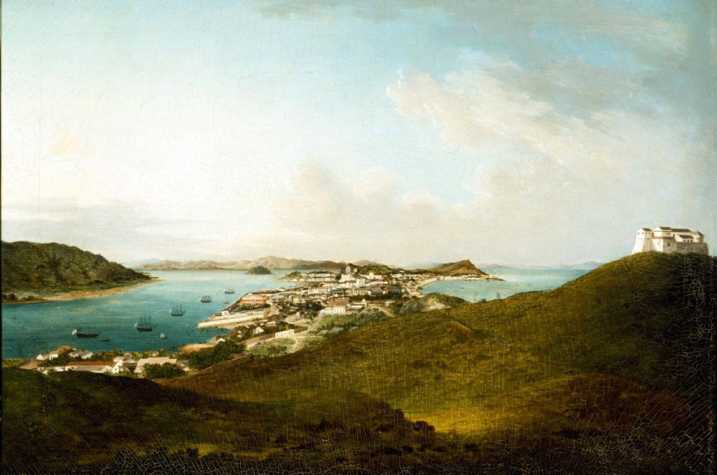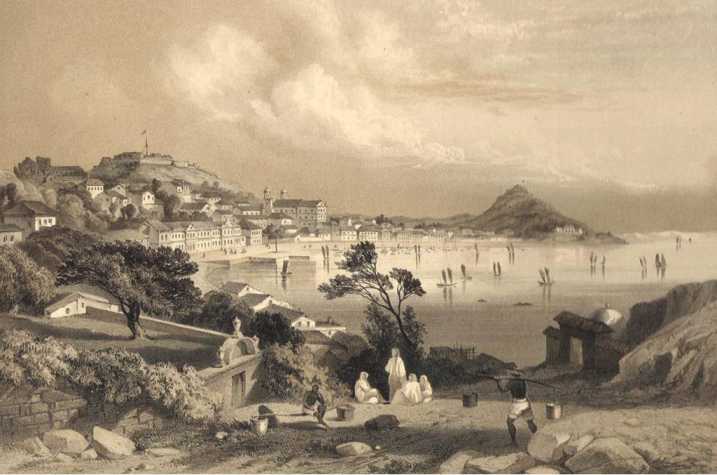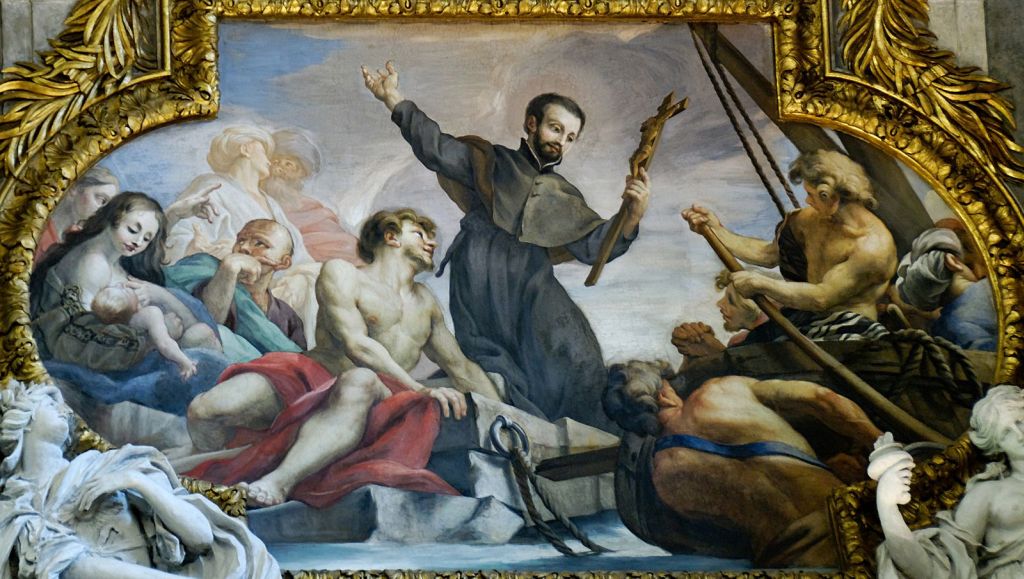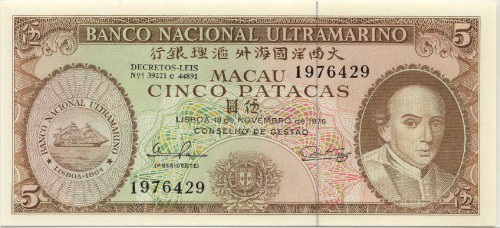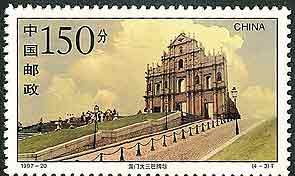WELCOME
About this site
This site presents information on the history and culture of Macau:
- Electronic books on Macau and Macanese, for example:
The Portuguese in Hong Kong and China by JP BragaIn Search of a Better World by B Koothe history of the Ribeiro and Nolasco da Silva families by P Grills
- Cultural and historical articles, for example:
the autobiography of Fr Zinho Gosano, who was a prisoner-of-war in Japan during World War IIan article on the Dutch attack on Macau in 1622
- A list of the hundreds of Macanese who have received high honours from many nations
- More than 200 recipes of the dishes that graced the tables of Macanese.
- The old language (patuá)
 of Macau, is preserved here, with audio of thousands of words and phrases.
of Macau, is preserved here, with audio of thousands of words and phrases.
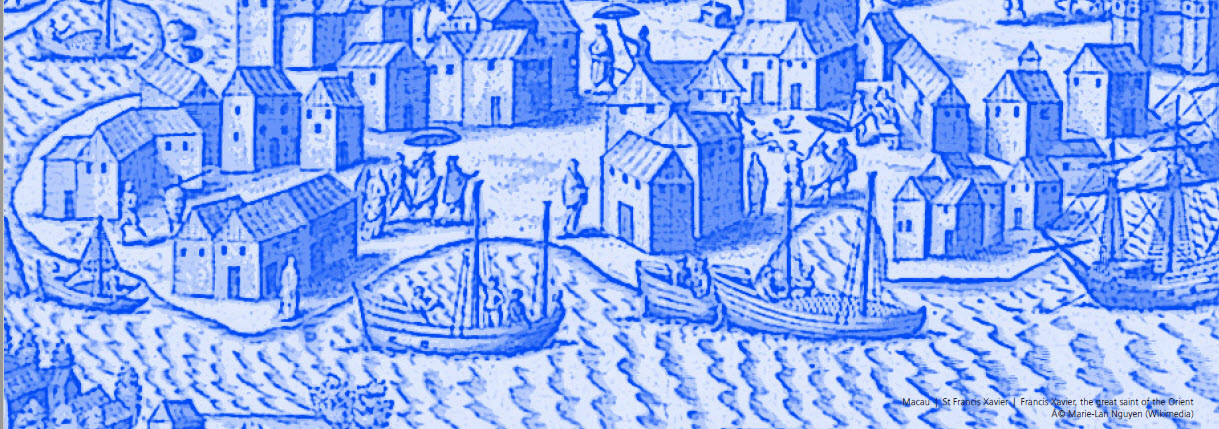
Macau
The Portuguese established a base in Macau in the 16th Century for trade and for the spread of Christianity. This settlement endured for four and a half centuries until 1999 when the colony was handed back to China.
The Portuguese families there, a tight-knit community, developed their own unique culture, patois (patuá) and fusion cuisine and called themselves "Macaense" or in English "Macanese".
In time, Macau became overshadowed in trade by Hong Kong and many Macanese moved further afield to find employment, but they always had their roots in Macau.
After World War II, the migration became a flood – the so-called diaspora. Today Macanese families are dispersed all over the globe and their history and culture are in danger of being lost.
Fortunately, there are many individuals devoted to preservation of the Macanese culture and a number of organisations supporting and encouraging communities all over the world; prominent among these is the 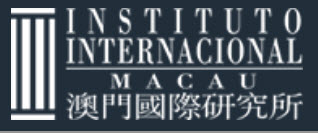 International Institute of Macau.
International Institute of Macau.
Our objectives for this website are:
- to engender a sense of pride in Macanese heritage,
- to foster interest in family roots among the newer generations of Macanese,
- to create a permanent repository for the preservation of cultural and historical records,
- to have the work continue indefinitely into the future.
Credit is due to the team who have collaborated long and hard to make this site and appreciation and gratitude to the approximately 800 people who contributed information.
"Macanese"
Originally, the word "Macanese" (Macaense in Portuguese) was used to denote people of Portuguese descent, who were born in Macau or who had an ancestor born there. Today its usage has broadened and it is sometimes used to denote persons of any ethnicity who live in Macau. However, in this website we use the word in its original sense. Read some interesting views on the diaspora and the Macanese in an article by David Brookshaw and the academic study by B. Koo.
Macanese also call themselves Maquista  /Macaísta
/Macaísta  , Nossa Gente ("our folk"), filo-Macau/filho-Macau from filhos de Macau ("sons of Macau ") and Balichão/Balichung
, Nossa Gente ("our folk"), filo-Macau/filho-Macau from filhos de Macau ("sons of Macau ") and Balichão/Balichung  (after their popular and unique condiment).
(after their popular and unique condiment).
